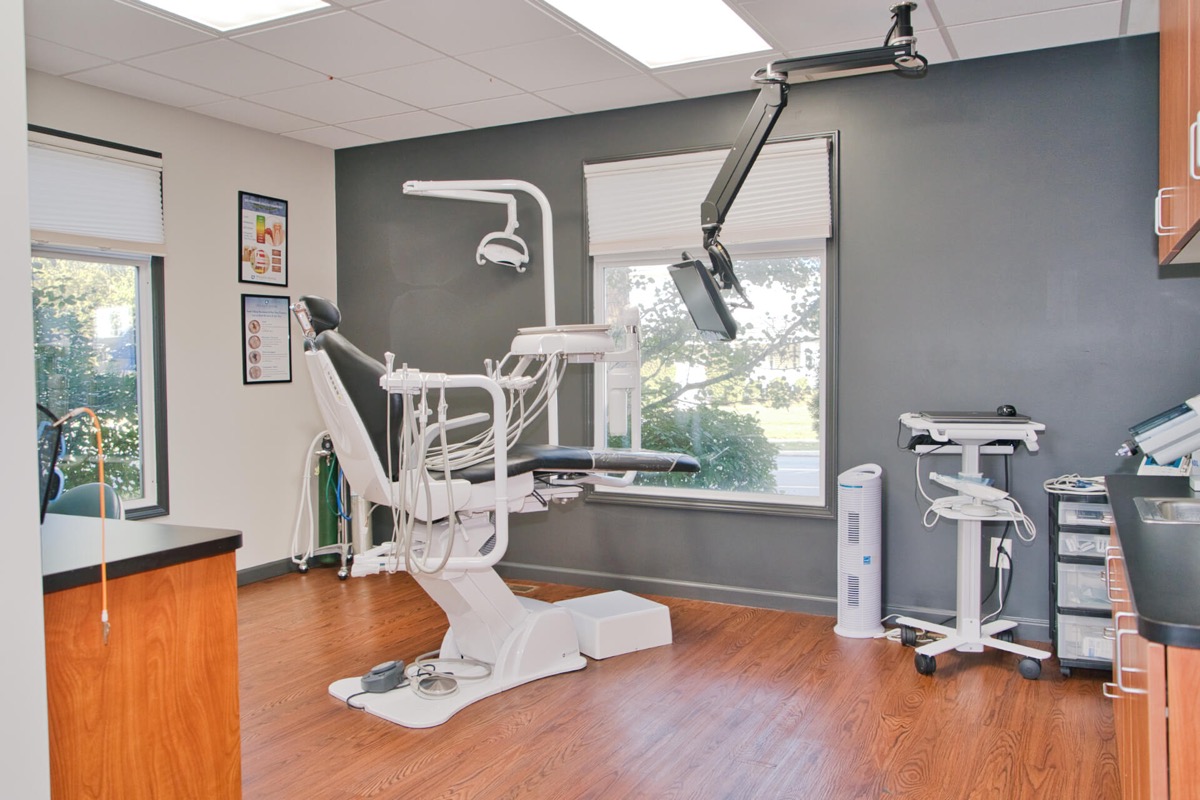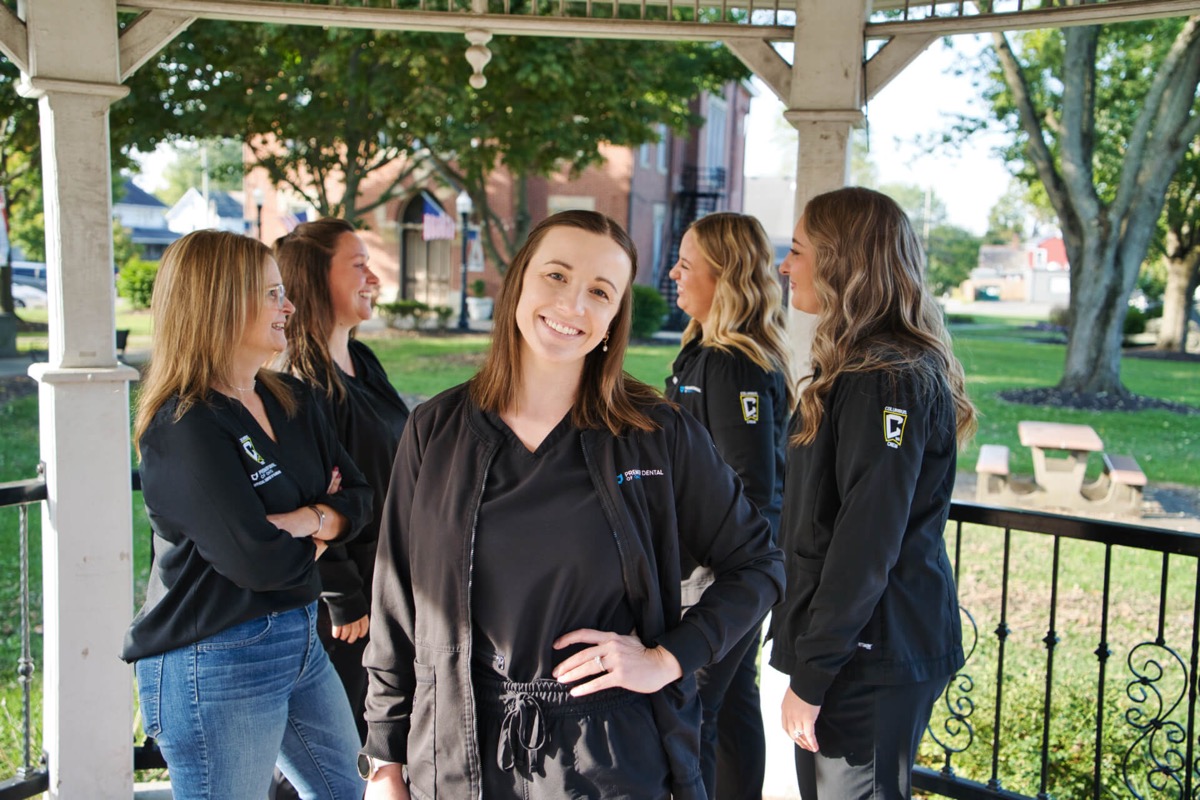
Local Dental Sealant Services for Residents in Johnstown, OH and the Surrounding Area
An ounce of prevention is worth a pound of cure - and when it comes to your teeth, dental sealants are a great way to protect your teeth from damage and decay. The caring dental team at Premier Dental of Johnstown uses dental sealants to seal the surface of your teeth. Dr. Cook and Dr. Hudoba will assess your teeth for potential issues and determine if dental sealants are appropriate for your teeth. Dental sealants are painless and can prevent small cracks or chips from becoming cavities or serious dental infections that require extraction or root canals.
What are dental sealants?
Dental sealants are protective coatings applied to the chewing surfaces of your back teeth. The sealant material is very similar to the resin used in tooth colored fillings and is designed to fill in the crevices and groves to keep sugars and bacteria from causing cavities in these areas.
Sealants, if applied and maintained correctly, are more than 80% effective at preventing cavities and have been identified as one of the most effective preventative health measures available to patients.
How do sealants prevent cavities?
There are many nooks and crannies in and around the teeth in your mouth. One area of particular concern, is this chewing surfaces of the molars or back teeth. These areas have many grooves and pits and because of the way the teeth develop when we are young, these grooves may be microscopically small.
Their openings can often be narrower than a single bristle of a tooth brush, making cleaning these areas next to impossible for you at home home. This may be why, even with great home care, patients may get cavities in these areas. Sealants are effective because they are “bonded” into these groves, keeping sugars and bacterial out, as well as allowing patients the ability to effectively clean the entire chewing surface with a conventional tooth brush.
How are sealants applied to the teeth?
First, the chewing surface of the tooth is adequately cleaned and dried. After this step the dentist, dental hygienist or certified dental assistant will use various cotton rolls and swabs to isolate the tooth from the cheek and tongue, keeping it clean and dry until the sealant is complete.
A blue gel, called etchant is applied to the tooth and allowed to penetrate for 20-30 seconds. The etchant is acidic and will help to remove any remaining debris from the groove as well as to open up tiny pores in the tooth surface allowing the sealant to lock into place. The etchant is rinsed and the tooth is dried before a bonding agent or glue is painted on, followed by the sealant which is squirted slowly into place. The sealant is very runny and is allowed to flow into all the nooks and crannies of the tooth.
Lastly, a bright blue “curing light” is used to harden the sealant and bond it to the tooth. The application of dental sealants is very efficient… each tooth should only take 1 or 2 minutes. Sealants are painless, very quickly applied and are done without numbing or drilling. Occasionally, if grooves are very deep, the dentist may elect to slightly “open” or widen the groove to allow the sealant to properly penetrate all the necessary areas.
Who needs sealants?
Everyone! Most dental insurances only pay for sealants on children and young adults. While these patients are often the most susceptible to getting cavities, every patient can benefit from the cavity prevention potential of dental sealants.
How long do sealants last?
While sealants are applied very quickly, they are actually a very technically demanding dental procedure. Complete isolation of the tooth is required and any contamination of the tooth surface by saliva while the sealant is being applied can affect the bond formed between the sealant and your tooth. As you may imagine, sealants placed on young children with curious tongues and plenty of spit can be particularly challenging. It is not uncommon for sealants to have to be redone or “touched-up” from time to time. Patients who chew very hard substances like nuts or ice, or those with clenching or grinding habits will likely need sealants replaced more often.
How much to sealants cost?
The full fee of a dental sealant may be as much as $50 to $60 per tooth, however most insurance plans pay 100% of this cost for children. Adult sealants may be offered at a discounted rate through your insurance carrier or by your dentist. As your dentist or hygienist if you would benefit from adult dental sealants.
Our Johnstown dental office uses sealants to provide extra protection for your teeth. Dr. Hudoba and Dr. Crook will assess your teeth and enamel of cracks and determine if a dental sealant is the right approach. Dental sealants are part of our preventive dentistry at Premier Dental of Johnstown because preventing food and bacteria from entering your teeth can prevent cavities and other more serious dental conditions from taking root. If you have dental concerns, schedule an appointment with our Johnstown dental office and take advantage of our $89 new patient special. Our experienced dental team will take X-rays, provide a professional teeth cleaning and exam and explain treatment options such as sealants to protect your teeth.
Premier Dental of Johnstown provides quality general dental care for residents of Johnstown, New Albany, Mt. Vernon, and the surrounding areas in Licking County.



